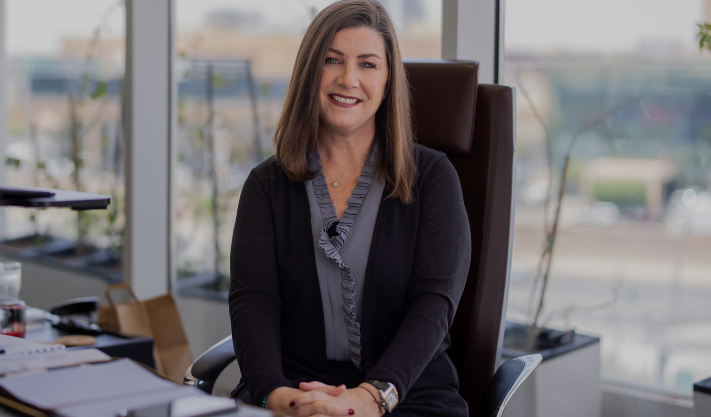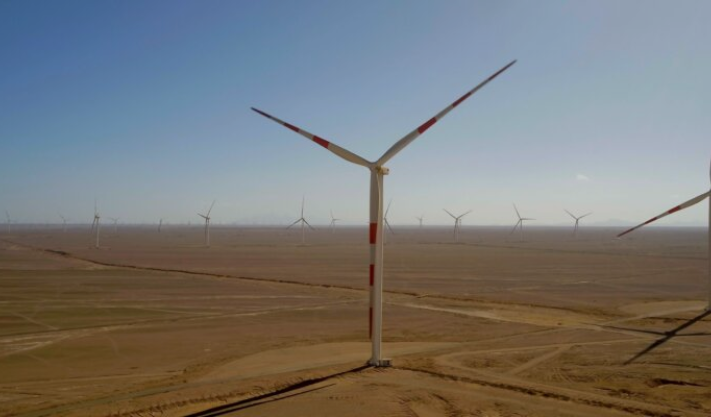
Exclusive: Sanofi CEO Paul Hudson Discusses Growing Biopharma Plans in Saudi Arabia
Saudi Arabia’s biopharmaceutical industry is going through big changes, especially with more medicines being made locally. The country’s pharmaceutical market is now worth $10 billion, which is about 32% of the total market in the Middle East and Africa, according to the Saudi Press Agency. From 2019 to 2023, the industry grew by an average of 25% each year. During this time, the market size increased from $8 billion to $10 billion, partly because Saudi Arabia reduced its medicine imports from 80% in 2019 to 70% in 2023.
French pharmaceutical company Sanofi is using advanced technology to help strengthen Saudi Arabia’s self-sufficiency and boost its biopharma sector. This supports the country’s plan to localize vaccine production as part of Vision 2030, which aims to diversify the economy. “There is a strong desire here to do something bold and innovative, like making products locally,” says Paul Hudson, Sanofi’s CEO.
In October 2024, Sanofi signed a seven-year agreement with Sudair Pharma Company and NUPCO to build a manufacturing plant in Saudi Arabia. This facility will produce and package Sanofi’s SoloStar insulin pens and advanced insulin products for people with diabetes.
Sanofi has a long-term plan that extends beyond 2030. This plan helps the company make key investment decisions with confidence, knowing there’s a clear direction. By collaborating with partners, Sanofi aims to achieve great results for patients, support the economy, improve resilience, and even drive innovation—a goal they’re passionate about, according to CEO Paul Hudson.
Hudson is leading Sanofi’s efforts to expand into the Saudi market while adopting AI and new technologies to create groundbreaking healthcare solutions. He started his career in sales and marketing at GlaxoSmithKline and Sanofi-Synthélabo in the U.K. before taking on senior roles at major pharmaceutical companies in Japan, Europe, and the U.S. Before joining Sanofi as CEO in 2019, he served as CEO of Novartis Pharmaceuticals from 2016 to 2019.
In the third quarter of this year, Sanofi’s sales grew 12.3% compared to last year, reaching $14.2 billion, driven by strong vaccine sales. The company’s operating income also rose 14.4% to $4.9 billion. “We’re focused on achieving incredible results for patients while performing well and using technology to work more efficiently,” Hudson said.
Founded in 1973, Sanofi has been active in Saudi Arabia for over 50 years. In 2014, it opened its first production facility in the GCC at the King Abdullah Economic City, becoming the first global pharmaceutical company to produce locally-made treatments in the kingdom. In 2020, Saudi Arabia’s regulatory authority approved Sanofi to manufacture its first locally-produced antibiotic. In July 2023, Sanofi signed an agreement with Saudi biopharma companies Lifera and Arabio to enhance vaccine production in support of the National Immunization Schedule.
Sanofi makes over a billion vaccine doses each year, protecting 500 million people worldwide. According to Hudson, the company produces millions of these doses annually in Saudi Arabia. Currently, Sanofi is working on 12 vaccines and immunology drugs that are in advanced development stages and should be available in the next few years. Hudson explains that the company is using artificial intelligence (AI) to speed up progress, improve success rates, work more efficiently, and explore more opportunities for breakthroughs. A Global AI Summit report suggests that AI could reduce healthcare costs by 5% to 10% annually.
Hudson highlights that much of Sanofi’s innovation is focused on monoclonal antibodies—lab-made molecules designed to boost the immune system—and vaccines. He says the company is getting better at precisely targeting the cells that cause inflammation, discomfort, or embarrassment, and these advancements are shaping the future of medical breakthroughs.
Immunoglobulins make up 75% of Sanofi’s future development plans, and Hudson believes these treatments can also be developed and used in Saudi Arabia. He notes that there has been a global revival in vaccine interest, partly due to increased health awareness. Hudson mentions experimental vaccines for chlamydia, acne, RSV, and E. coli, calling them potential “game changers.” He adds that Saudi partners like Lifera or PIF may want to join in these efforts, emphasizing that the goal is to ensure people have access to innovation. “We’re open to discussions,” he says.
Saudi Arabia is working to reduce its dependence on importing medicines and aims to become a major player in the pharmaceutical industry both regionally and internationally. In June 2022, the Minister of Industry and Mineral Resources, Bandar Ibrahim Alkhorayef, announced $3.4 billion in investment opportunities in biopharmaceuticals and vaccines. In January 2024, the country launched the National Biotechnology Strategy, aiming to lead the MENA region in biotechnology by 2030 and achieve global leadership by 2040. The strategy plans to create 11,000 jobs by 2030 and add over $34.6 billion to the non-oil economy by 2040, making up 3% of the total GDP. For 2024, the government allocated $57 billion to health and social development, with plans to increase this budget by 1.7% to $69.3 billion in 2025.
According to Ram Kumar, a Consulting Manager at Euromonitor, Saudi Arabia has developed a strong regulatory framework, robust intellectual property protection, and an investment-friendly environment for the pharmaceutical sector. This helped the Saudi Food and Drug Authority (SFDA) achieve WHO’s highest regulatory rating, becoming the first in the region to do so. The country’s growing investments in clinical trials, biotech, and life sciences also attract global companies like Sanofi to expand their operations in Saudi Arabia.
Research and development (R&D) are driving continuous innovation. In 2023, Saudi Arabia increased its R&D spending by 17.4%, reaching $6 billion. Sanofi has invested $12.6 million in the country and plans to expand further. The company is focusing on groundbreaking treatments, called the “Big 12,” and is collaborating with the Ministry of Health on using AI in medical diagnosis and analyzing real-world data to track diseases and evaluate the effectiveness of medicines.
“There’s something unique about the work being done here,” says Paul Hudson, CEO of Sanofi. “Using real-world evidence, we’re demonstrating the value of our treatments to benefit more patients, and we’re proud of that progress.”
Published: 27th December 2024
Also Read:
Beltone Holding approves $212M for growth and expansion
Dubai’s drone delivery to reach 33% of all shipments by 2030
TMG Holding hits $9.8B sales in 2024, fueled by Saudi, North Coast
















